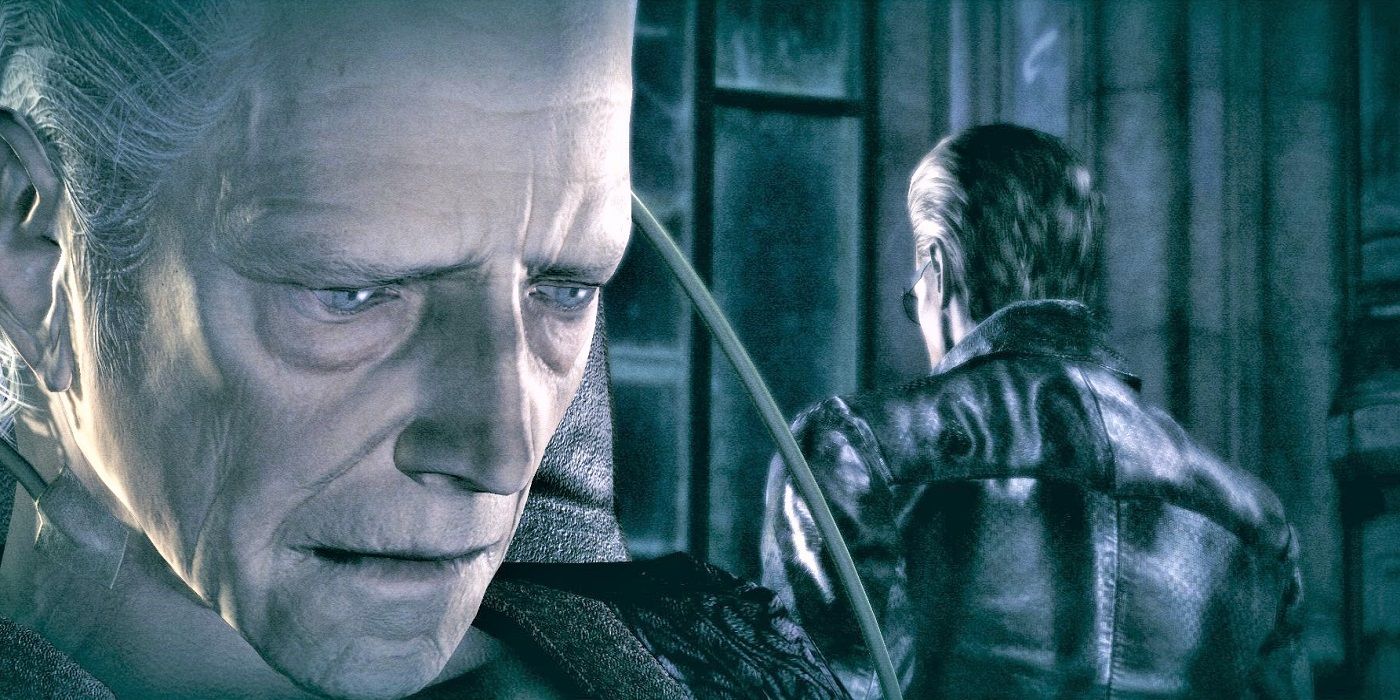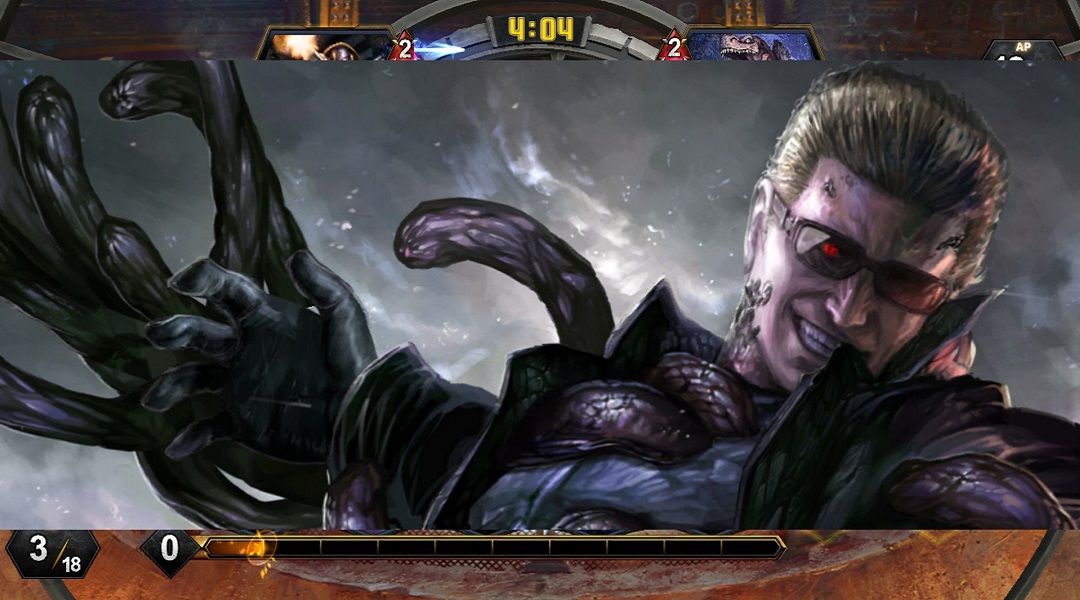Rumored Resident Evil's Netflix Series Seems to Break Canon, But Does It?

Recent leaks regarding the Resident Evil Netflix series have caused fans to speculate that the television show's plot may take a different course from the games, given the introduction of two new female characters named Jade and Billie Wesker who have no inclusion in the game series previously. However, this actually does not necessarily contradict the storyline of the games but may actually expand upon one of the games' sub-plots already present in the game series.
To recap, the Resident Evil rumors also suggest that these two characters are half-sisters and will be the daughters of infamous Resident Evil villain Albert Wesker. Considering that Albert Wesker had a son in the video game series, Jake Muller, who was not introduced until Resident Evil 6, it is entirely possible that Albert Wesker could have had more children who are lurking out in the world somewhere.
Albert Wesker had special abilities, which would presumably be passed on to any children he may have, given that Jake Muller himself had some of his special powers. Jake was not only immune to the C-Virus, but his blood held the key for creating a cure. Albert Wesker's super-human abilities were the result of years of experimentation by Umbrella in their attempts to unlock the true power of the original Progenitor virus, which the T-Virus was derived from.
To fully understand who Albert Wesker was in the bigger picture of the universe, it is important to grasp what Resident Evil's Project W was, and its purpose. Essentially, one of the three founders of Umbrella Corporation, Dr. Oswell E. Spencer, decided to run a side-project of his own, utilizing large sums of his financial wealth.

Dr. Spencer spent years adopting children who would prove to be the cream of the crop in terms of high mental capacity and learning capabilities. He believed the world was being corrupted and held back by human decadency, and wished to create a future world run by the most gifted and intellectually capable human beings, as part of a twisted side project from Umbrella Corporation.
Among these many bright children, the best would be experimented on with a particular strain of the Progenitor Virus aimed at unlocking the infections true potential in creating super-humans. Among thirteen of the brightest test subjects selected for this phase of the project, only Albert Wesker and another female child, Alex Wesker, survived the infection. Albert Wesker essentially became super-human, whereas Alex barely survived and developed nothing but a degenerative disease.
In Resident Evil 5, Albert Wesker essentially carries out an even more sadistic version of Spencer's vision for a Utopian future by attempting to release the final version of the super-human infection, Resident Evil's Uruboros virus, into the Earth's atmosphere. This would thereby infect all humans on earth. It was expected that most humans would not survive the infection, as it requires a high mental threshold to withstand the transformation.
In essence, it was calculated that a minority of human beings were to survive the Uroboros infection, while the world's population would be greatly reduced. In this scenario, mankind would survive and supposedly thrive onward as a race of super-humans which would ultimately manage and run a better world as a species more wholly superior than before, despite being far less in numbers.
If it is true that these two new characters, Billie and Jade Wesker, are the daughters of Albert Wesker, it can be presumed they would also contain some of Albert's super-human abilities and strengths in addition to his intelligence. After all, in the games, it was mental composition which was the most important factor in containing these super-human viral strains.
Furthermore, it is entirely possible that Albert would have anticipated that any children he has would contain the necessary mental and organic composition to become individuals who survive any future release of the Uroboros virus in the Resident Evil timeline and may even prove to be more superior to the rest of those who survive the transformation.

This could ensure that Albert Wesker not only fulfills his vision for a twisted Utopian future, but also guarantees a fairly convenient paradigm by which he makes plans for loyal super-human offspring who would guarantee him some sort of future role as a leader among a more powerful human race.
There is also the possibility that that the rumors are not completely accurate, and Jade and Billie Wesker may not be the daughters of Albert Wesker, but may be other adopted test subjects in Dr. Spencer's Project W. After all, Project W consists of many Weskers, but the video game series only introduced us to two of them: Albert Wesker and Alex Wesker in Resident Evil: Revelations 2.
Also, given Resident Evil's reliance on cloning story-lines, it could also turn out to be true that Jade and Billie Wesker may be daughters of Albert Wesker who were biologically engineered in a lab as part of Project W. After all, given that Albert Wesker proved himself to be the very best of all the adopted Weskers, it would make sense that Dr. Spencer may want to utilize Albert's DNA to engineer his offspring, and they would come with super-human powers already intact at birth, presumably, if it was done after the point at which Albert was given the infection.
While this is all speculation, the important factor here is that the new rumors by themselves do not necessarily mean the Resident Evil television show could be veering off course from the games, or at least not to a great degree. Thus far, they do not conflict with the game's historical timeline necessarily and may even expand upon it for all we know.
In actuality, there has yet to be an official confirmation about any of the story's elements from Netflix or its producers,or the existence of the series itself. Many of Resident Evil's fans hope the show will remain canon. Considering that many viewers were displeased with the storyline of the Resident Evil movies, it may be wise to stick with the canon version of events, considering the video games already have a solid storyline and timeline in place that still present questions needing answers in the Resident Evil universe, perhaps with the exception of Resident Evil 6.

With the exception of some elements of Resident Evil 6's complex and disorganized storyline, the series has a solid overall plot which the television series could fit itself into easily, and even expand upon. There are decades of history to work with in the plot, dating back to Umbrella's foundation in 1967 when its founders discovered the Progenitor virus within a flower in West Africa. Whether Netflix decides to take on its own course of events in a television series or not, sticking to the familiar territory which the Resident Evil video games have already established could prove to be the safer course of action, given the stigma that resonates from the movies.
Resident Evil is rumored to be in development at Netflix.

Post a Comment